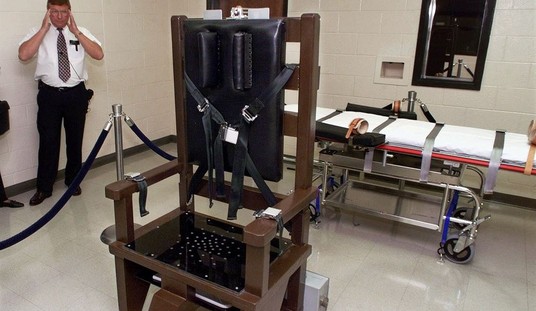No kidding. On almost every measure, the Democratic Party has lost significant ground to Republicans during the Barack Obama era. Six years ago, they seemed ascendant, on the verge of the mythical “permanent majority” not just on the federal level but in state legislatures, politically and culturally, and certainly demographically. After suffering through not just one but two historic midterm debacles, Republicans are now much stronger than they were during the peak of the George Bush era — or even the Ronald Reagan era, in all places but the White House.
Politico reports today that former Clinton advisor Donna Brazile went to the White House two weeks ago with a message. Clean up your act and fix the party you’ve broken — and make sure Obama takes responsibility for the effort:
Enough, Donna Brazile told White House political director David Simas the day after the midterms.
Democrats are in worse shape than when President Barack Obama came into office — the number of seats they have in Congress, the number of governors, a party approval rating that’s fallen behind Republicans for the first time in recent history, enthusiasm, energy. The White House, Brazile said when she came to meet with Simas, has got to focus for the next two years on getting the party into better shape, and Obama’s the best and most effective person to get out the message.
The White House has been issuing sunny proclamations ever since the elections and trying to focus on Obama’s current activities rather than the massive rebuke he got from voters over his performance in office. That’s a façade, Edward-Isaac Dovere writes, intended to distract from the obvious:
“People are licking their wounds… trying to figure out where they go from here: ‘Can we be the phoenix rising from the ashes?’ Where are these issues where he’s going to dig in his heels and fight? Where does he compromise with Republicans, and how does he manage the politics of that?” said a Democratic strategist familiar with the White House. …
Great, Democrats say. Now make something of it. Talk about the economic progress that’s happened. Talk about how to achieve job growth to build on it.
“The best thing he can do is focus on income inequality, and talk about and propose things, and just be a fierce advocate for addressing the economic divide,” said another Democratic strategist with ties to the White House. “That will leave people after two years saying the Democratic Party really stands for something.”
That ignores the fact that Obama and the entire White House have been talking non-stop about the success of their economic initiatives while simultaneously exhausting the rhetorical library on income inequality. Other than “war on women” and climate-change demagoguery, it’s practically all they’ve discussed. The election showed that no one buys their pitch any longer. People remain pessimistic about the economy, and they’re more concerned about job creation than income inequality.
This also misses the fallout from Jonathan Gruber, too. The architect of ObamaCare made it clear that the White House and Democrats didn’t just deceive voters, they strategized on how to do it and how to fake out the CBO so they didn’t get caught. Post-Gruber, no one’s going to believe anything this White House has to say, right up to and including Obama, who made the ridiculous claim that he’d barely heard of Gruber while earlier video showed him clearly bragging about stealing Gruber’s ideas. Obama and the White House lie about lying. Why would more talk help?
The remarks from White House officials suggest that Obama will go big on progressive policy to re-establish his credibility over the next two years. Josh Kraushaar warns in National Journal that such a strategy will likely do more damage to the Democratic Party than the previous six years have already done:
President Obama’s biggest problem over the next two years may not be coming from recalcitrant Republicans, but from members of his own party blanching at his activist agenda over the final two years of his presidency. While the midterm election results suggested widespread dissatisfaction with the president’s policies, Obama nonetheless is planning to press forward on several polarizing decisions in his final two years. It could help advance his legacy, but come at the expense of the Democratic Party’s long-term health.
Three of the administration’s biggest agenda items—threatening a veto of bipartisan legislation authorizing construction of the Keystone XL pipeline, reaching a nuclear deal with Iran, and issuing an executive order legalizing millions of illegal immigrants—divide Democrats, and unite Republicans. If the president moves forward with all of them, it would aggravate fissures in an increasingly-divided Democratic Party. And it would put Hillary Clinton, his party’s expected 2016 standard-bearer, in an uncomfortable position even before she announces her candidacy. She’s already avoided taking stances, if not outright rejecting the direction Obama is heading during his final two years in office.
The dirty secret in Washington is that while Obama (rightly) blamed Republicans for holding positions to the right of the American electorate, the president is pursuing policies that are equally as far to the left.
Obama didn’t learn the Bill Clinton lesson after the first midterms. He’s not interested in learning it after his second massive defeat, either. Even with Bill Clinton’s more strategic direction, Democrats ended up losing narrowly at the end of his presidency. Obama may be leading Democrats into a reverse 2008, or perhaps even worse.








Join the conversation as a VIP Member